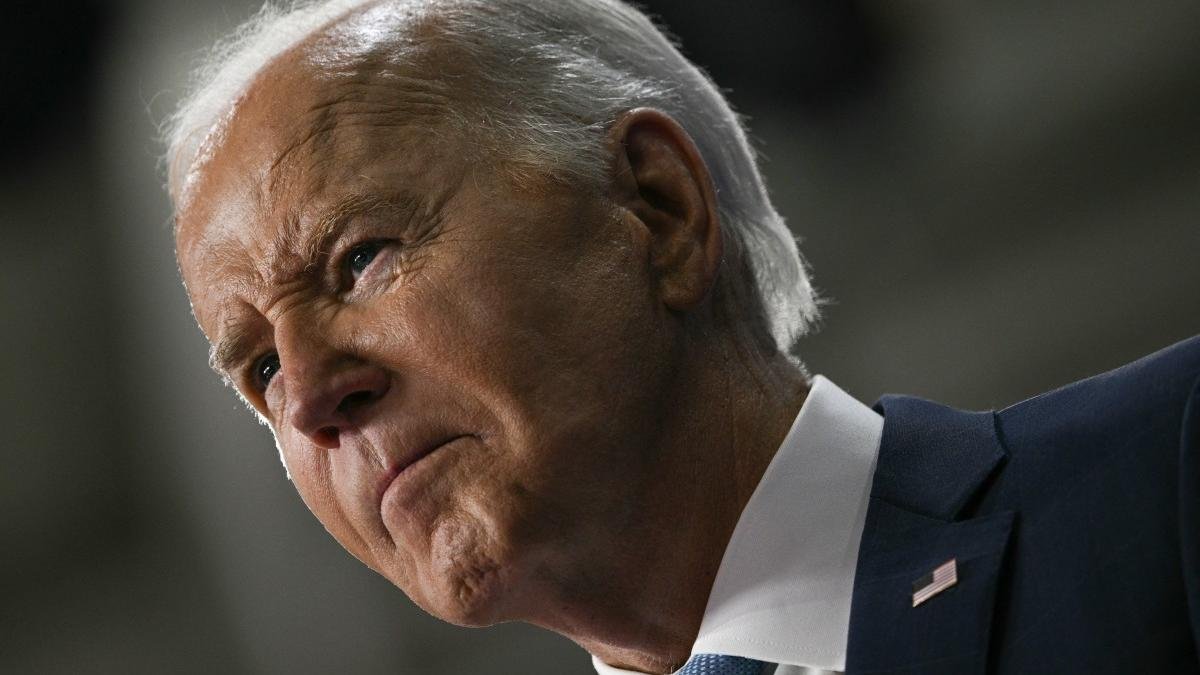Three years since the withdrawal from Afghanistan, the worst stain of the Biden-Harris administration
The Taliban's rapid takeover of Kabul took U.S. forces by surprise, producing chaos and death. The events damaged the image of the United States, but especially of the government.

Joe Biden, president of the United States
Friday marks three years since the catastrophic withdrawal of U.S. forces from Afghanistan, almost 20 years after the invasion carried out by the United States following the Sept. 11, 2001, attacks.
The Taliban takeover of Afghanistan's capital, Kabul, on Aug. 15, 2021, following the unresisted collapse of the pro-Western government and the flight of President Ashraf Ghani, took the Americans by surprise and was the end point of a rapid campaign in which radical Islamists took control of the country's main cities in just one week, producing major chaos to evacuate desperate Afghans and foreigners who did not want to remain under the Taliban regime.
While the Taliban did not attack Western forces during the entire evacuation, the terrorist group ISIS-K (Islamic State of Greater Khorasan) perpetrated an attack on Aug. 26, 2021, which included a suicide bombing and an explosion, in which 13 U.S. military personnel and 170 Afghans were killed.
After the attack, Biden vowed to "hunt down" those responsible and launched air offensives against ISIS-K targets.
Washington and its NATO allies failed to foresee how quickly the Taliban would take control of Afghanistan, so the withdrawal was carried out hurriedly and in an extremely chaotic manner, leaving behind thousands of Afghans who had helped Western nations and were therefore entitled to be evacuated.
Western nations evacuated their citizens who were in Afghanistan, as well as Afghans working as interpreters, embassy employees, human rights activists and journalists, among others.
In those fateful days, the world watched in horror as images showed many Afghans desperate to flee the country amid great chaos and confusion, especially in and outside of Kabul airport.
The shocking images were seen around the world and gave the impression that the United States was running away from Afghanistan.
The events demonstrated a clear failure of U.S. intelligence regarding the survival of the Afghan government and damaged the image of the United States, though especially of the Biden-Harris administration.
Kenneth McKenzie, then commander of U.S. Central Command, was charged with announcing that the withdrawal from Afghanistan was complete after some Americans and Afghans departed on the last rescue flight from the Kabul airport.
Following the end of the withdrawal, President Joe Biden wrote: "Now our 20-year presence in Afghanistan has ended." He added that the world must ensure that the Taliban honor its commitment to allow people who wish to leave Afghanistan to do so.
On Aug. 31, a day after the end of the withdrawal from Afghanistan, Biden gave a speech boasting about the operation despite the chaos that ensued and the harsh criticism of his administration. "I’m the fourth president who has faced the issue of whether and when to end this war. When I was running for president, I made a commitment to the American people that I would end this war. And today, I’ve honored that commitment," Biden said. He added: "I was not going to extend this forever war, and I was not extending a forever exit."
Following the U.S. withdrawal, the Taliban declared "independence" from Afghanistan.
Taliban fighters watched as the last U.S. planes took off and then celebrated their victory by firing into the air.
More than 122,000 people were rescued from Kabul from Aug. 14 to Aug. 30 as part of the operation by Western countries after the Taliban completed their takeover of Afghanistan.
The air evacuation ended one day before the final deadline set by Biden: Aug. 31 at midnight.
Hours before completing the withdrawal, U.S. forces managed to intercept five rockets fired by ISIS-K at the Kabul airport.
Another humiliation for the Biden-Harris administration: US weapons in the hands of Afghan terrorists
In April 2022, a U.S. Department of Defense report accessed by CNN noted that U.S. forces left $7 billion worth of military equipment in Afghanistan during the chaotic 2021 withdrawal.
These weapons had been shipped to the previous government for 16 years and were left in the hands of the Taliban, which even exhibited some of the equipment to humiliate the United States at a recent military parade held to celebrate three years in power.
The equipment abandoned in Afghanistan includes air-to-ground weaponry, military vehicles, weapons, communications equipment, among others, the report stressed.
Trump's harsh criticism
While the Donald Trump administration signed the withdrawal agreement with the Taliban in February 2020 and the Biden-Harris administration implemented it, the former president has been highly critical of the way the operation was carried out.
Recently, the Republican candidate for president stated on the social network Truth Social that the withdrawal from Afghanistan was "botched" and "the most EMBARRASSING moment in the history of our Country." He added: "You don’t take our soldiers out first, you take them out LAST, when all else is successfully done."
"Russia then invaded Ukraine, Israel was attacked, and the USA became, and is, a laughing stock all over the World," Trump maintained.
Life under the Taliban
The U.S. withdrawal led to the Taliban taking power again in Afghanistan, resulting, among other things, in the imposition of extreme Islamic laws and a marked deterioration in the rights of Afghans, especially women. In addition, the country is facing a severe economic and humanitarian crisis.
Recently, the Taliban government has issued a series of laws in order to further curtail the freedoms of its citizens, including a ban on the sound of women's voices in public.
In addition to Taliban oppression, the inhabitants of Afghanistan suffer from extreme poverty. According to international humanitarian organizations, some 24 million Afghans live at or below the poverty line. Unemployment has also reached extremely high levels.

























